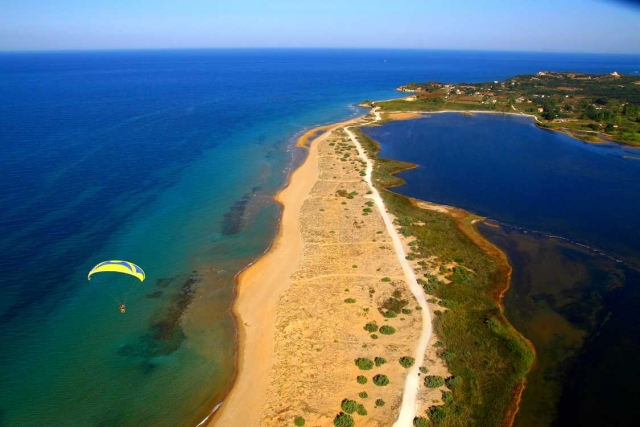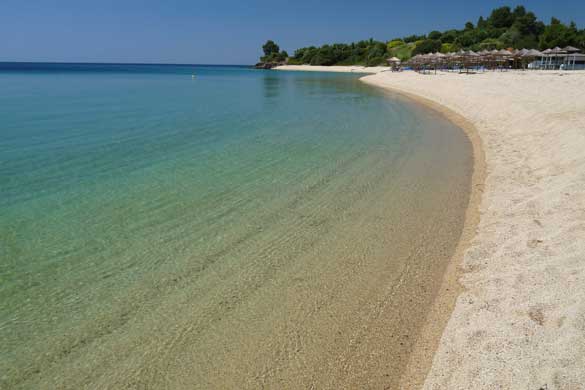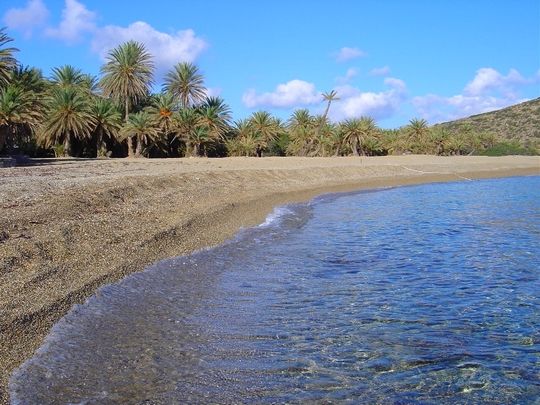Picture: www.tanea.gr
In 2013, 393 Greek beaches, one less than last year, were awarded the Blue Flag - a symbol of quality and good organisation of the beach. This is an international programme for rewarding beaches, the results of which were announced at an event organised in Voula (South Coast) by the Hellenic Society for the Protection of Nature (HSPN), which is the national representative of the programme in Greece. With this number of excellent beaches, Greece ranked second place in the world among 48 other countries. Moreover, like in the past three years, 9 Greek marinas were also awarded the Blue Flag.

Chalikounas beach, Corfu Picture: www.cofrubenitses.gr
Regions with the greatest number of Blue Flags awards
The following regions were honoured with the greatest number of Blue Flag awards: Lasithi (Crete) - 36 beaches, Corfu (35), Chalkidiki (35), the Dodecanese Islands (25) Chania (20). The top five municipalities with the greatest number of Blue Flag awards are Corfu (35), Agios Nikolaos in Lasithi (23), Rhodes (20), Aristotelis in Chalkidiki (14) and Sithonia in Chalkidiki (12).
This year, the International Commission honoured a total of 3,103 beaches and 626 marinas worldwide.

Porto Katsiki, Lefkada, Picture: http://newlifestyle.gr
Control and criteria
Beaches that want to get the Blue Flag award must meet 32 criteria. It is not enough just to have waters of exceptional quality. Other criteria include cleanliness, organisation of the beach, information, security of visitors and protection of natural resources. Marinas need to meet 22 criteria.

Lagomandra beach, Chalkidiki, Picture: http://sithoniagreece.com
Examiners of the Hellenic Society for the Protection of Nature (HSPN) monitor the required criteria during the summer and note possible problems and deficiencies that may lead to suspension or revocation of the Blue Flag and removal of the beach or marina from the programme’s list and website. The test results are taken into account at the end of the season when making assessments for the following year.
Beaches or marinas, which received a Blue Flag the previous summer, may re-apply if they can prove that they are still meeting the requirements.
The "Blue Flag" programme

Vai, Crete, Picture: http://www.oneman.gr
The Blue Flag Programme is an international symbol of quality. It is owned and run by the non-government, non-profit organisation the Foundation for Environmental Education (FEE), based in Denmark. It has 63 member countries from all continents. The Blue Flag has been awarded since 1987 to beaches and marinas that meet its stringent requirements. According to the Hellenic Society for the Protection of Nature (HSPN), large travel agencies abroad pay great importance to the Blue Fag when choosing destinations for their customers, requiring both the best services and protection of nature. This fact is well known to municipalities, hotels and campsites that participate voluntarily in the programme.